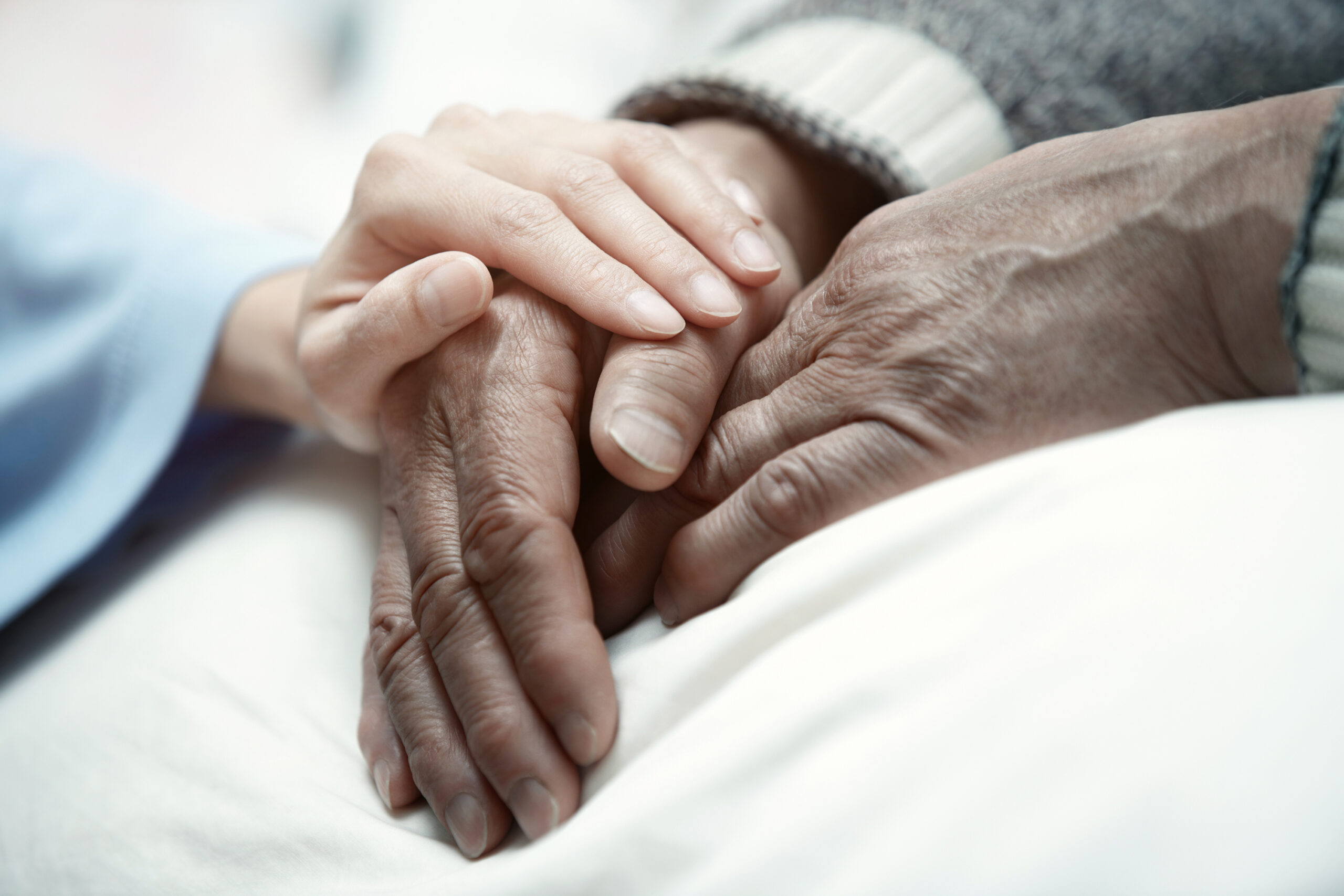While the holiday season is often a joyous time for many people, some older adults may struggle during the holidays. These occasions may be reminders of loss, including the loss of loved ones, of familial roles, or the loss of ability or independence. Holidays may also increase a sense of loneliness.
Here are the strategies recommended in the Harvard Mental Health Letter that may help you or someone you know who is grieving cope with the holidays:
- Start a new tradition. It might be helpful to create a ritual to acknowledge the loss. Some ideas: during a holiday dinner leave an empty chair, say a few words of remembrance, light a candle, or plant a tree.
- Change the celebration. Because of COVID-19, our holidays may already look very different than in years past. If you can, embrace the difference. Hold virtual family gatherings, change the holiday menu, or have your meal delivered from a grocery store or restaurant.
- Express your needs. People who are grieving may find it hard to participate in all the festivities or may need to let go of unsatisfying traditions. It’s alright to tell people you just aren’t up to it right now or to change plans at the last minute. It’s up to you which activities, traditions, or events you participate in. You are not obligated to do anything that doesn’t feel right to you. Create realistic expectations for yourself and others. Be gentle with yourself.
- Help someone else. It may also help to volunteer through a charitable or religious organization, especially if you can give your time and talent to something that relates to what caused your pain. For example, if you’ve lost someone to suicide, volunteer for a depression or suicide hotline. If you lost a loved one to COVID-19, Alzheimer’s, or another disease, give money to a local hospital or participate in a clinical trial. Make a donation to a favorite cause in memory of the person who died. Or you can buy something that symbolizes the person, or what you shared with them, to donate to a family in need. Sometimes the biggest comfort may come from giving to others.
- Give yourself time. The grieving process doesn’t neatly conclude at the six-month or one-year mark. Every person’s journey with grief is different. No one can tell you how to grieve or how long it will take. Nevertheless, grief does usually soften and change over time. With time, the holidays can become easier to handle.
During this time of the year, reach out to the older adults in your life. Invite them to parties, send them cards to show that you care, and find activities you can both participate in. What traditions could an older person pass on to you? You may find that intentionally including older adults in your festivities brings more love and joy into your life.
References
Goyer, B. A. (2020, December 11). Dealing With Grief During the Holiday Season. AARP. Retrieved October 25, 2021, from https://www.aarp.org/home-family/friends-family/info-2020/grief-loss-during-holidays.html
Harvard Health. (2011, December 24). Coping with grief and loss during the holidays. Retrieved October 25, 2021, from https://www.health.harvard.edu/blog/coping-with-grief-and-loss-during-the-holidays-201112244028
Depression is NOT a Normal Part of Growing Older
Older adults are at an increased risk for experiencing depression, however it is not a “normal” part of aging. 80% of older adults have at least one chronic health condition and 50% have two or more. Depression is more common in people who have other illnesses or whose function becomes limited. However, most older adults are not depressed. Some estimates of major depression in older people living in the community range from less than 1% to about 5% but rise to 13.5% in those who require home healthcare and to 11.5% in older hospitalized patients.
Depression is a treatable medical condition like diabetes or hypertension, but older adults often go misdiagnosed and undertreated. Providers may mistake older adults’ depression as a natural reaction to illness or changes that may occur as we age. Older adults themselves may share this belief and not seek help, not realizing that they could feel better with appropriate treatment, such as medication, psychotherapy, complementary therapies such as yoga and exercise, electroconvulsive therapy (ECT), or a combination of treatments.
Signs of Depression (Symptoms last for weeks at a time)
- Feelings of hopelessness and/or pessimism
- Feelings of guilt, worthlessness, and /or helplessness
- Irritability, restlessness
- Loss of interest in activities or hobbies once found pleasurable, including sex
- Fatigue and decreased energy
- Difficulty concentrating, remembering details, and making decisions
- Insomnia, early-morning wakefulness, or excessive sleeping
- Overeating or appetite loss
- Thoughts of suicide, suicide attempts
- Persistent aches or pains, headaches, cramps, or digestive problems that do not get better, even with treatment
Is it grief or depression?
Grief after loss of a loved one is a normal reaction to loss and generally does not require mental health treatment. However, grief that lasts a very long time or is unusually severe following a loss may require treatment.
How to help someone with depression?
If you know someone who has depression, first help him or her see a doctor or mental health professional. Several ways you can help an older adult with depression is to:
- Offer support, understanding, patience, and encouragement.
- Help keep track of his or her appointments and weekly “pillbox” if possible because many older adults with depression may not be thinking clearly.
- Try to make sure he or she has a way of getting to doctor visits.
- Talk to him or her and listen carefully.
- Never ignore comments about suicide and report them to your loved one’s therapist or doctor.
- Invite him or her out for walks or outings, or to engage in indoor activities with you.
- Remind him or her that, with time and treatment, the depression will lift.
If you or someone you care about is in crisis, please seek help immediately.
- Call 911
- Visit a nearby emergency department or your health care provider’s office
- Call 988, the 24-hour hotline of the National Suicide Prevention Lifeline to talk to a trained counselor
Note: The National Suicide Prevention Lifeline has changed it’s number. You can simply call 988. You can also access support and resources online at https://988lifeline.org.
References
Division of Population Health, National Center for Chronic Disease Prevention and Health Promotion. (2021, January 6). Depression is Not a Normal Part of Growing Older. Centers for Disease Control and Prevention. Retrieved October 25, 2021, from https://www.cdc.gov/aging/depression/index.html
National Institute of Mental Health. (n.d.). NIMH » Older Adults and Depression. Retrieved October 25, 2021, from https://www.nimh.nih.gov/health/publications/older-adults-and-depression
Additional Resources
Below is a small collection of additional resources to support you and your loved ones through this holiday season.
More Information:
- Clinical Trials and You- www.nih.gov
- Locate Affordable Health Care in Your Area- www.findahealthcenter.hrsa.gov
- Mental Health Treatment Program Locator- www.findtreatment.samhsa.gov
Online resources:
- National Suicide Prevention Lifeline – call 988 or visit 988lifeline.org
- Healing Center Seattle: healingcenterseattle.org
- Collection of grief support resources from the WA Department of Health: doh.wa.gov
- Links to a variety of grief and bereavement resources compiled by People’s Memorial: peoplesmemorial.org
- Soaring Spirits, a support group for widows: soaringspirits.org
Books:
- The Aftereffects of Caregiving by Gary Joseph LeBlanc and Holly Beth Michaels
- The Longest Loss: Alzheimer’s Disease and Dementia published by Hospice Foundation of America
- After Caregiving Ends, A Guide to Beginning Again: Support, Suggestions and Stories to Help You Heal and Step Into Next by Denise M. Brown
- It’s Ok That You’re Not Okay: Meeting Grief and Loss in a Culture that Doesn’t Understand by Megan Devine
- The Body Keeps the Score by Bessel van der Kolk
- Healing Rage by Ruth King
- all about love by bell hooks
- Complex PTSD: from surviving to thriving By Pete Walker


